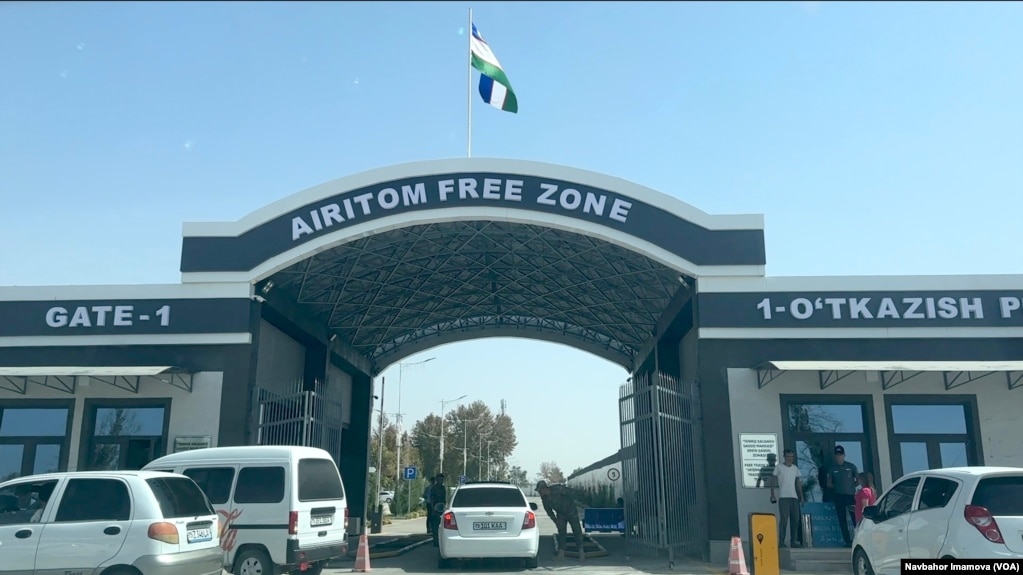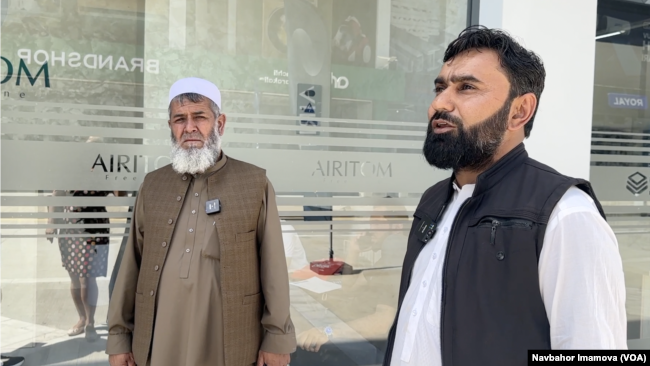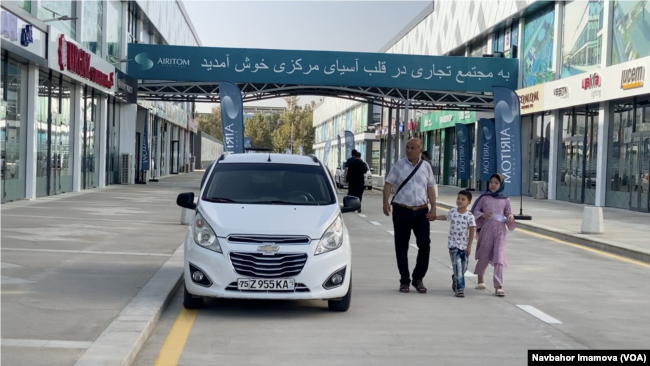On 10 May 2024, Haroon Nafas was in his family’s guesthouse in Baghlan, north Afghanistan, spending time with friends who had come to stay. It had been raining lightly all through the afternoon, but at about 3pm the group heard a loud crashing noise.
“We immediately went outside to see what was causing the sound,” says Nafas. “Initially, we were confused, thinking it might have been a plane. But then we realised, no, it’s a flood.”
Nafas rushed home to his own house, which fortunately was located up on a hillside, and started gathering his family. Meanwhile, several town members sought shelter atop the local mosque, including Nafas’s brothers, who used a mulberry tree to climb on to the roof and reach safety.
Others were not so lucky. “The flood was very severe, maybe up to 30 metres high,” says Nafas. “People were even dragged in from the roofs of certain buildings. The damage from the waters spread several kilometres. Some households lost up to 11 family members.”
Over two days, at least 315 people were killed in Baghlan and more than 2,000 homes destroyed. About 1,600 people were injured, and hundreds more were missing. Flash floods also wreaked havoc in other provinces across Afghanistan, with at least 50 people killed in Ghor.
Afghanistan has always been prone to natural disasters. Among low-income nations, it ranked second in the number of deaths caused by them between 1980 and 2015, according to one report. However, the frequency and extremity of disasters such as flash flooding is on the rise, and climate breakdown is not solely responsible for these changes. The country’s history of armed conflict has exacerbated the situation severely.
Dr Najibullah Sadid, an environmental researcher and water resources expert based in Germany, says it is crucial that warring parties are held more accountable as toxic artillery often gets left behind and damages the environment. Explosives can damage ecosystems, disrupt biodiversity and weaken soil structure, and can damage groundwater resources.
According to a report by the Progressive magazine, the US dropped more than 85,000 bombs on Afghanistan between 2001 and 2021. In spots where massive ordnance air blast bombs, nicknamed “the mother of all bombs”, were dropped, such as Nangarhar province, scientists have found that plant yields halved due to the spread of toxins. Such toxins can also be carried to other regions by the wind or in water.
Mine contamination is another problem. As of 2021, only one of Afghanistan’s 34 provinces had ever (temporarily) been declared mine-free. The remaining 33 provinces still have explosive ordnance scattered across them. Despite this, funding for the country’s mine action sector has been declining, from $113m (£86m) in 2011 to $32m in 2020. The Taliban takeover in August 2021 has threatened these streams further, as many donors remain reluctant to engage with the new government, despite improved operating conditions and access to previously unreachable locations. According to the United Nations Mine Action Service about 45,000 Afghan civilians have been killed or wounded by landmines since 1989.

Sadid says the mines have a direct connection to the recent flash floods: “Landmines [and] de-mining activity disrupt soil structure. Disrupt this, and you are basically exposing the soil to erosion. The debris flow in Baghlan, for example, can be linked to war because the floods originated from a valley which is completely dry.”
Conflict-caused deforestation also worsens flash floods. In 1970, Afghanistan had 2.8m hectares (6.9m acres) of forest, covering 4.5% of the country. By 2016, this had shrunk to about 1.5%. In Nuristan, a province in eastern Afghanistan, forest cover had reduced by 53% in that time.
“Vegetation retains a lot of rainwater,” says Sadid. “When there is no forest, the land becomes exposed to landslides, and the runoff increases. That’s why we now see very extreme flash floods occurring in some parts of Afghanistan.”
For Sayed Abdul Baset, a disaster risk reduction expert and Herat resident, the issue hits close to home. The former adviser to the Afghan government says there is still an opportunity to unite and mobilise despite the problems caused by climate breakdown.
“These natural disasters are related to the activities of the land,” he says. “They show how unsafe our homes are, how weak our coping capacity and early warning systems are. We don’t have water pipes. The topography of the soil is not good. There is no flood zoning. People live in floodplains. It is a very painful picture. It is no less than a war.”
Sohila Akbari, who is based in Herat, has been leading humanitarian efforts as part of a 12-woman team for more than a decade.

With financial contributions collected from the Afghan diaspora and donors abroad, her grassroots organisation Committee Akbari regularly distributes emergency aid such as food, clothes and tents to the city’s poorest and disaster-struck.
“I first started interacting with those struggling through my work as a teacher,” says Akbari. “Slowly, I started to develop an interest in finding other ways to help. I’ve since connected with Afghans all over to try to take the work further.”
Akbari was herself a victim of the devastating series of earthquakes that hit Herat in October 2023, killing more than 2,000 people. “It was a very horrible day. We hadn’t experienced an earthquake in years. It took us all by surprise.”
She recalls hearing a horrible noise that resembled explosions. “You couldn’t even stand. The ground would go out from under you. Our house was on the third floor so it was especially bad. I remember telling the children to run, just run. Don’t worry about me. They ran. I was in the stairwell when the ceiling caved. I thought I was finished.”
They spent the next few days seeking shelter in a local school. After two days, Akbari resumed her distribution efforts to those who had been most severely affected.
“We are in the city. What else can we do if we don’t help? We will do our best. What little we can do, we will do it,” she says.
It is through locals such as Akbari, who are already familiar with the people affected, that aid can have the most successful outcome, says the longtime climate journalist Laurie Goering.
“This is the giant question in climate finance right now. How do you actually move such big amounts of money from governments and organisations to those women in Afghanistan? Taking advantage of local systems and actors, and finding intermediary groups to get more of that money to where it’s needed is really important,” Goering says.

As for how much compensation warring states owe for the destruction caused in Afghanistan, Goering refers to the United Nations Development Programme’s loss and damage fund as a good place to start. This is a new fund aimed at helping impoverished nations cope with the damage caused by climate-induced natural disasters. Support will be offered in the form of grants.
“The fund is designed to help communities and countries recover from things they couldn’t have adapted to,” says Goering. “So that money would be really useful in places like Afghanistan.”
Since their rise to power in August 2021, the Taliban have remained excluded from the global stage. For Goering, this poses an extra challenge: “It’s hard to get funds if you’re excluded from international systems. There’s a lot of thinking at the moment about how to move money to very vulnerable places without going through the government.”
Despite Afghanistan being one of the countries most vulnerable to global heating, due to its arid climate, mountainous topography and reliance on agriculture, it was once again excluded from the Cop28 climate talks last year, something Goering says is problematic.
“Afghanistan doesn’t have high emissions,” she says. “This is something that’s happening globally, that everybody must work on together. Otherwise, we won’t solve the problem.”
It is a sentiment shared by Rahmani, who believes support from international institutions and existing data could go a long way: “We need to create a roadmap for each region of Afghanistan. Also, 60% of Afghans are young. They can be taught. With a very small budget, they can be provided with employment, education and training in the climate field.”
However, to truly muster the potential of younger generations, Rahmani admits better climate awareness is a crucial first step: “People think that this is God’s will, that because of our sins, these disasters happen to us and that we can’t do anything about it. Such beliefs and social behaviours have a lot of impact.”
Rahmani also hopes to see more remediation from warring parties, as well as high-emitting nations.
“These countries have a responsibility,” he says. “This is happening because of them. Places like the United States, England, Brazil and China – they keep their industry alive with fossil fuels and adapt themselves and raise their resilience. But for Afghanistan, which is currently very limited in terms of global relations, those conditions are completely closed.”
In March, the UN security council voted to extend its mission in Afghanistan for another year, but this is focused mostly on the humanitarian crisis rather than climate impacts.
There is also an ongoing parliamentary inquiry in the Netherlands on the impact of the Dutch and Nato’s 20-year intervention in Afghanistan. Similar initiatives by other countries embedded in the Nato campaign could accelerate reparations and aid.
For Rahmani, prioritising smart policies and expanding irrigation projects, such as those implemented in recent years across Nangarhar province, is the way to go.
“We had a very large climate project a while ago, backed by millions of dollars. But unfortunately, all the work is suspended. We need funds. These are very serious issues. It is very necessary for the people of the world to be united so that we can solve these problems.”
Since the Taliban takeover in 2021, large-scale conflict has reduced significantly. According to the Internal Displacement Monitoring Centre, no new conflict displacement was recorded in 2023. However, by the end of that year, there were still 1.5 million people internally displaced as a result of natural disasters.
For Baghlan resident Nafas, the most pressing need for those affected is clean water. He hopes the humanitarian response offers a solution before the situation on the ground worsens.
“The tap systems have all been damaged,” he says. “All the canals are covered with mud. There is no drinking water, no water for ablution, for people’s livestock, for agriculture. Incomes have also been suspended. People are living in makeshift tents. It’s chaos. It is hot now but soon the cold season will come.”
Interviewees’ names have been changed to protect their identities.
 Afghanistan Peace Campaign
Afghanistan Peace Campaign


 A view of Ragh area, Badakhshan province. Photo by Fabrizio Foschini, 2012You can preview the report online and download it by clicking
A view of Ragh area, Badakhshan province. Photo by Fabrizio Foschini, 2012You can preview the report online and download it by clicking 







